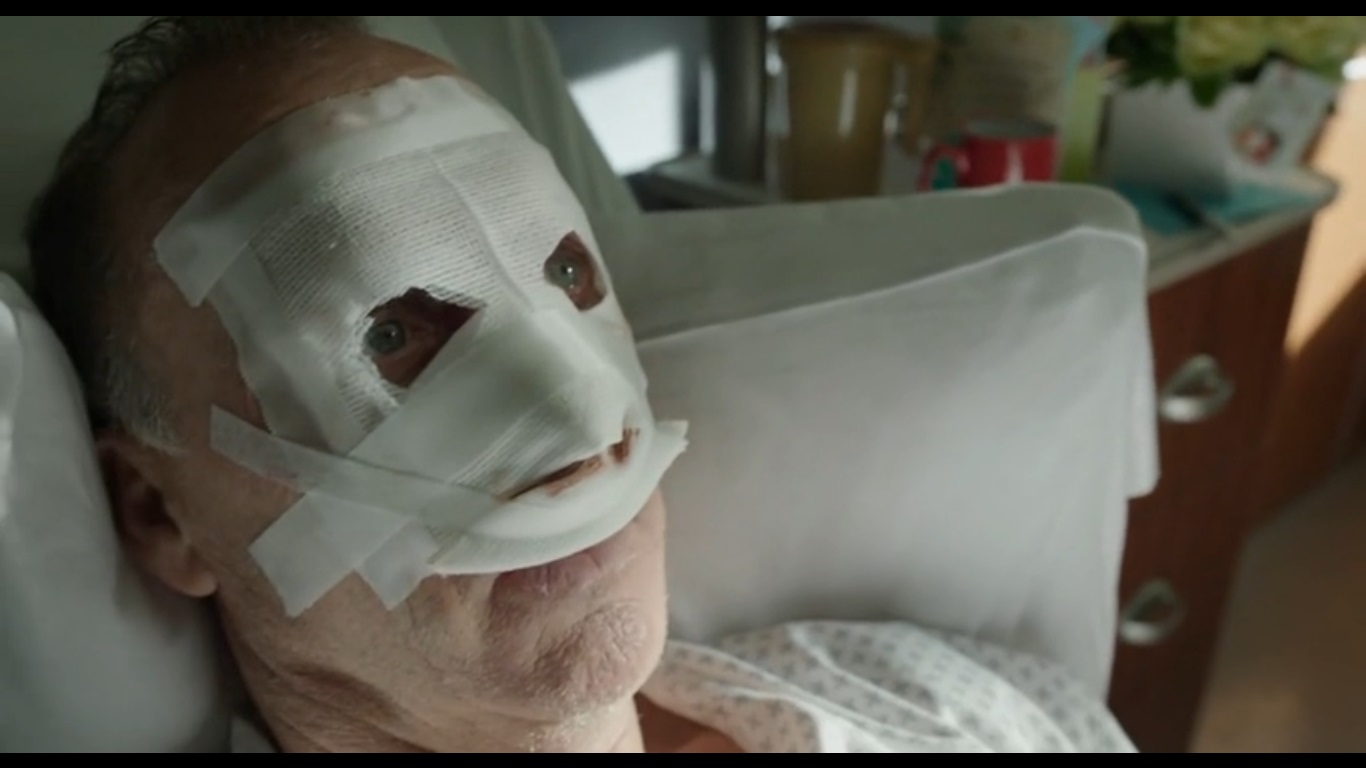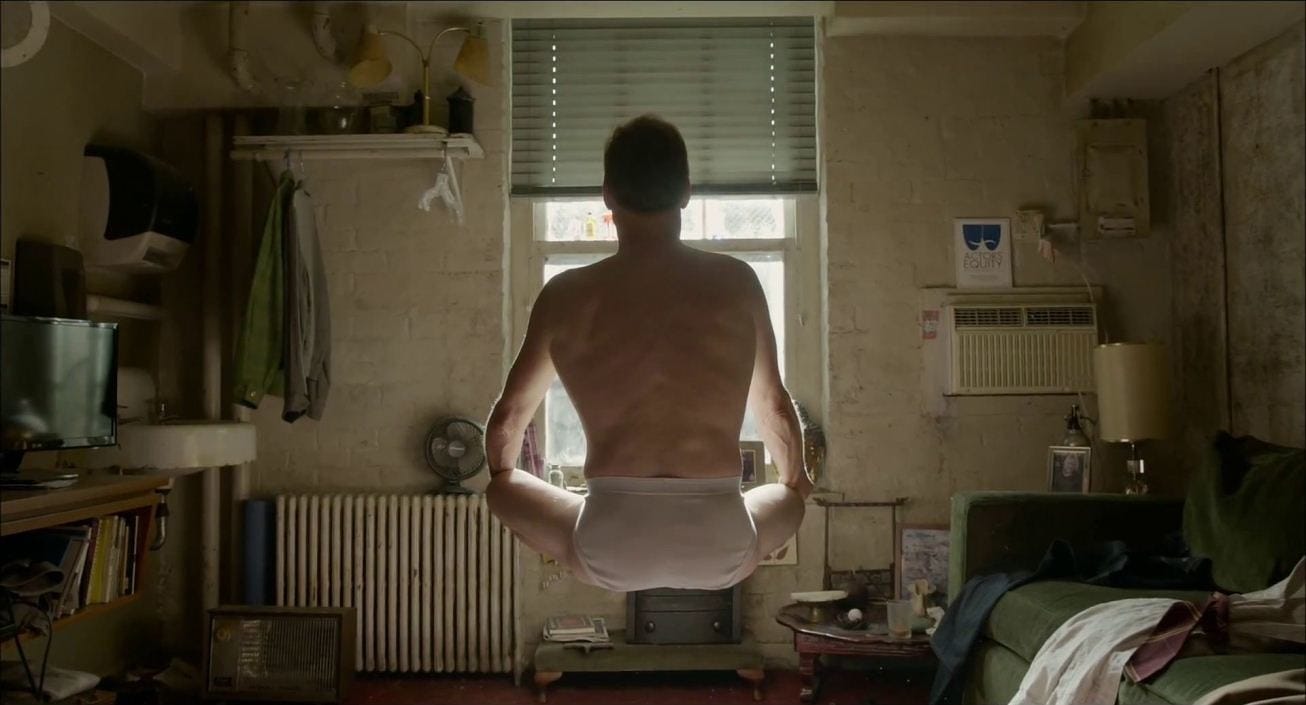- Joined
- Dec 12, 2009
- Messages
- 31,514
- Reaction score
- 9,066
To add insult to injury, I was reading this thread through a cellphone when you posted that
So Keaton's hardships are worthwhile and noble because he was searching for "a real experience"?
I hate to sound like @Bullitt68 here, but if that "real experience" leads him to almost committing suicide (they never say if he blow his nose off on purpose or accident, right?), isn't it rather self-defeating? What value does it have if it leads to you dying or losing his nose? Ah, screw all this @Bullitt68 talk! Suicides for everyone! Yayyyy!
Then again, I don't know how literally we are to take anything that happens in the ending. I mean, this is a movie that ends with him flying out of the window and his daughter watching. Maybe the whole suicide thing is more metaphorical.
I think Birdman could be a nasty satire about ambitious actors and not so much about art. I’ll try to watch it again if I’m in the mood.
I never took the movie to be really about[...] art
Having rewatched the movie, all I can say is, I sort of get the impression that it's both. On some level, it's making fun of all these crazy actor types. But all those monologues and dialogues about acting and the theater are a bit too seriously-delivered and pathos-filled to not be a part of the films texture.
Michael Keaton is glorious as Riggan Thomson

The movie opens with a shot of Riggan levitating in his dressing room. Its the type of shot that throws the viewer straight into the mind of the films protagonist.
True dat! I think it's rather interesting that he's in some meditative position, projecting a sense of tranquility, when the rest of the movie is basically an escalation of him psychologically spiraling out of control.
Riggan is unhappy with one of his actors and he glances at the area above the actors head just before a light falls and knocks him out. Hmm, ok that's weird.
Got to love how that guy returned as Riggan is walking through the lobby in his underwear, accompanied by a fat, stuffy lawyer who wants to sue them.

Maybe we could assume that this is the symbolic moment that Sam looks up to and respects her father, loves her father, which is what Riggan desperately wanted all along
Could be that...
By having achieved "true" artistry, Riggan now can actually fly.
But I think, that ending is more like a dream-sequence, a reflection of Riggan's head. His wishes and ambitions coming through. Notice how close and affectionate he seems to be with his daughter -- and that his show is a smash-hit. All his worries have dilapidated, turned into successes. He's even caged the Birdman himself! He has been miracolously validated... despite attempting to comit suicide. It makes me think of the ending of Taxi Driver (after the shoot-out), in that many people believe that to be all in Travis's head, just based on how everything turns out the way he wants it to be despite it's unlikelihood.
Michael Keaton playing Batman just adds to this already richly layered film
Keaton doesn't really fit into the mold of Riggan though. Riggan has supposedly done nothing of notoriety since Birdman, a pop-corn selling celebrity without any artistry. That doesn't really fit with Keaton's image. I don't think anyone doubts his artistry and ability to perform beyond superhero-fare. Hell, when Keaton got the role of Batman, plenty of people didn't like him since they couldn't imagine this goofy, comedic guy being badass -- and then he turned out to be the best Batman of all time (excluding Adam West of course).
That is what Riggan ends the play with, "I don't exist. I don't exist."

In the first stage-scene -- where that light-prop falls on the bad actors head -- they also discuss suicide. Keaton mentions the failure of suicide, while the bad actor calls suicide crazy, and then the prop falls on him.
At 2:35 she says, "You're the one that doesn't exist." She is referring to the point that he doesn't even have a Facebook or Twitter page and hates bloggers.
Notice how Emma and the people who think like here are always mentioning numbers. You've been seen by xxxx amounts of people, as if someone's self-worth is judged soley by how many people they attract. They never once mention the quality of the message, "are you saying/doing something worthwhile".
The main theme to me is "how important is external validation to personal validation and why do we care?" The main character is doing the play for validation due to his perception as an actor and failings as a husband and father

Well articulated. His ex-wife even tells him "you cofuse love for admiration". I definitively do think that's part of the theme. But I also do think that the question of "is there something *special* to artistry that places it above mere face-recognizing celebritism that Riggan already has" is there in the theme.
Last edited:







